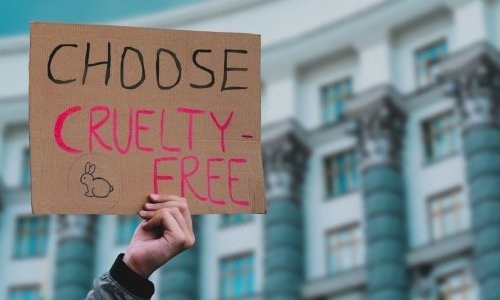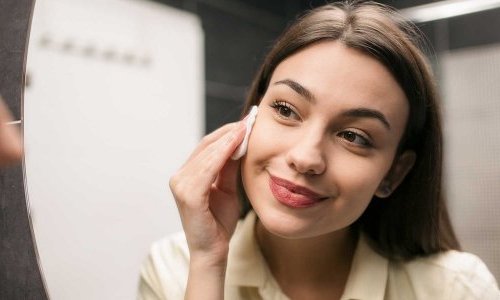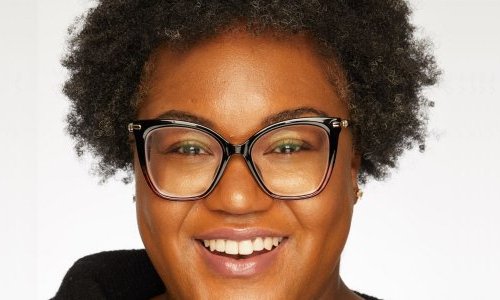
Nedjwa Abbadi
Premium Beauty News - What is the situation like in Europe today in terms of cosmetovigilance?
Nedjwa Abbadi - Currently the amended Directive 76/768/EEC governing the placing on the market of cosmetic products in the member countries of the EU, does not provide for a harmonised cosmetovigilance system. No one can deny that the situation is quite disparate depending of countries mainly because of Member States regulatory specificities. In some countries, like France, Portugal and Norway, a cosmetovigilance system is formalized and formally implemented. In other countries, it is in the process of being implemented, this is the case in the Netherlands, Italy and Spain. Elsewhere, a simple system of incentives for the declaration is effective for health professionals and manufacturers, with no real formal framework. This is the case in Belgium, Ireland, Sweden or Denmark.
Premium Beauty News - But this should change as of 11 July 2013 with the entry into force of the Regulation 1223/2009?
Nedjwa Abbadi - Indeed! Firstly, the new Regulation defines what is meant by “adverse” and “serious adverse reaction” [1] and, mostly, clarifies the obligations of the responsible person for placing on the market and of the distributors in the occurrence of such events and also the obligations of Member States. As this new regulatory framework is now supported by a Regulation and no longer, as was the case until now, by a Directive, these obligations will apply uniformly to all operators inside the EU and the European Economic Area. Upon entry into force of the Regulation, people will have to comply with these new rules. They will be directly applicable, It is no longer a question, as before, of “transposition” by Member States.
Premium Beauty News - And what are these new requirements?
Nedjwa Abbadi - Article 23 of the new Regulation requires that the responsible person and the distributors notify certain information to the authorities in the occurrence of serious adverse effects. They must describe these effects, indicating the name of the cosmetic product(s) concerned – so that it/they may be identified – and specify the corrective actions taken, if any. These new obligations complement those already provided for in the amended Directive 76/768/EEC, which are to make easily available to the public, the existing data on the undesirable effects.

Emmanuelle Amsler
Premium Beauty News - How can this be organized in practice?
Emmanuelle Amsler - This is the tricky bit! The management of serious cases requires both skills and the setting up of specific procedures that must complement those used in “classic” cases of cosmetovigilance.
This is not specific to serious cases, but of course the feedback on these cases will need to be organized. People will also need – and this is new – to be very reactive because the deadline for reporting serious cases is only of 20 calendar days from the time when any person in the company is informed of the case. Finally, the person will need to be able to decide on the seriousness of a case and have sufficiently documented it to then fill in a notification form and send it to the competent authorities of the country of occurrence.
If we focus on what is meant by severity, the regulation defines severe cases according to 6 criteria: temporary or permanent functional incapacity, disability, hospitalization, congenital anomalies, immediate vital risk or death. However, the exact definition for some of these criteria remains unclear.
Let’s take for example, temporary functional disability, how can it be considered in an objective and reproducible way? How to judge a functional disability in a pensioner, a school child or a housewife? Even sick leave is not easy to handle because there are some variations depending of the labour law and health systems in the different European countries. About hospitalization, it is quite clear that a simple visit to the hospital emergency service is not within its scope, but is there a clear definition of hospitalization for all countries concerned by the Regulation?
The reporting of information, for serious cases, is important. The possible entry doors need to be identified for consumers, educate and inform the teams involved in the detection of the level of seriousness (which needs to be clearly differentiated from severity) because they will be the first links in the chain.
Another issue is to be able to properly qualify these events. With of course the use of specific standardized questionnaires, but in the case of serious cases, the medical documents provided by consumers, and in their native language (medical certificates, hospitalization report, copy of the sick leave report, ...), will need to be decrypted!
In summary, at this stage, brands will need to have organized themselves and anticipated the answers to some key questions: Who fills in and sends the form to the competent authorities? Who monitors the case? Who ensures the relationship with the authorities?
Premium Beauty News - And at the distributor level?
Emmanuelle Amsler - Indeed, they are subject to the obligation of notifying severe cases the same way as the responsible person. Distributors are in direct contact with consumers, we can imagine that in the event of problems it is to them that they will turn to spontaneously. They also need to organize and structure their relationship with the responsible person.
Premium Beauty News - Some difference of opinion will certainly arise with authorities?
Emmanuelle Amsler - It is indeed conceivable, depending on differences in experience in terms of cosmetovilance between the different EU Member States, for some differences of opinion in the assessment of cases, to occur. Today it is difficult to anticipate what is going to happen. There will certainly be a need to communicate/explain/argue in the case of divergence on a case.
Premium Beauty News - What can you bring to brands?
Emmanuelle Amsler - IRIS is a unique centre of vigilance which, with over 20 years of experience, offers assistance and support to brands in the investigation of their cases of cosmetovigilance. At the request of brands, we contact the consumers concerned to collect the relevant and specific data on the adverse effect reported. Then, depending on the case, we can propose a contact over the phone with a physician, or a consultation with a possible allergy investigation (tests with the product, and if necessary its ingredients). All this helps to document the case, an essential step in its appraisal. Once the investigation is completed, an internally validated conclusion by a physician is sent to the brand. This document specifies in particular the diagnosis for the presented reaction, if it is possible to make one, and the evaluation of the accountability between the use of the product and the adverse effects reported.
With the new Regulation, and the management of severe cases, this mission is still topical and IRIS has complemented its services to assist brands in their regulatory obligations, particularly by making an assessment on the severity and by helping them to fill the notification forms.




























